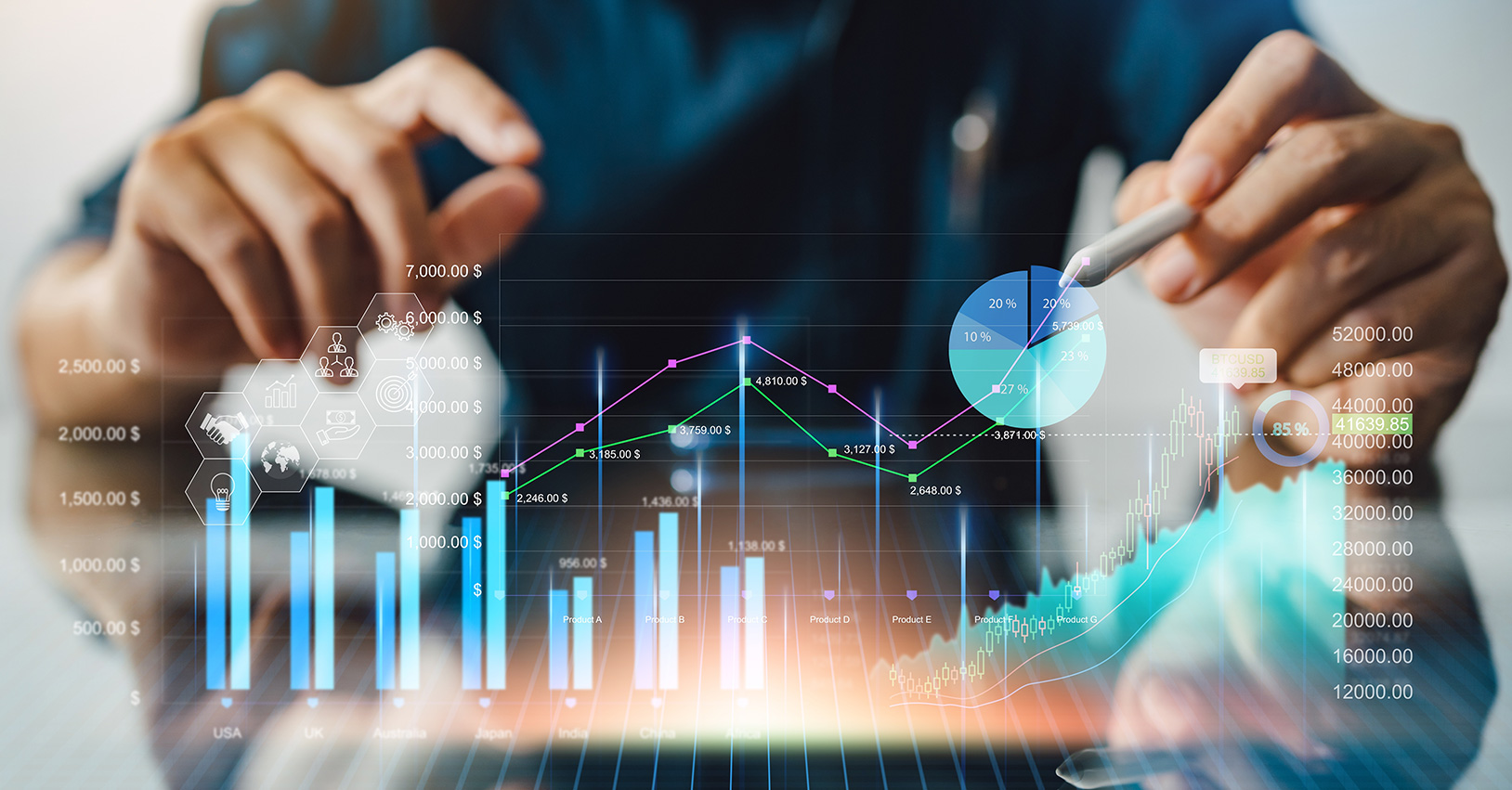


Home »
Reading Time: 8 minutes
Traditional tax processes are time-consuming, error-prone, and burdensome due to manual data entry, paper documentation, and complex compliance requirements. In the face of a technological revolution, innovation in tax practices is imperative. Cutting-edge technologies such as artificial intelligence, blockchain, cloud computing, and robotic process automation offer solutions to streamline processes, enhance accuracy, and provide real-time insights. Embracing these advancements is not just convenient but a strategic move to address current challenges and position tax practitioners for a future where agility and adaptability are paramount.
The need for innovation in tax practices is evident as businesses navigate a dynamic economic landscape. Traditional methods are limiting, and the demand for faster, more accurate, and adaptable solutions is driving a paradigm shift in the industry. Embracing innovative technologies is essential not only for overcoming current challenges but also for future-proofing tax practices. The stage is set for a transformative journey where technology becomes the catalyst for reshaping tax practice processes.
AI is poised to revolutionize tax practice by automating data extraction and analysis. With the ability to process vast amounts of financial data at remarkable speeds, AI technologies can streamline the often labor-intensive task of data entry, significantly reducing the potential for errors associated with manual input. AI’s analytical prowess extends beyond basic data processing. Machine learning algorithms, a subset of AI, empower tax professionals with predictive analytics tools for tax planning. By analyzing historical data patterns and identifying trends, these algorithms can provide valuable insights, enabling tax practitioners to make informed decisions, anticipate potential challenges, and optimize strategies for tax efficiency. The marriage of AI and machine learning not only enhances the accuracy and efficiency of tax practice but also positions tax professionals at the forefront of data-driven decision-making in the dynamic landscape of taxation. As these technologies continue to mature, their role in reshaping the future of tax practices becomes increasingly pivotal.
Blockchain technology stands as a game-changer in the realm of tax practice, primarily through its ability to enhance transparency and security in tax records. The decentralized and immutable nature of blockchain ensures that once information is recorded, it cannot be altered retroactively without consensus from the network. This feature addresses the issue of trust in tax transactions and financial records, mitigating the risk of fraud or manipulation. Furthermore, the transparent and traceable nature of blockchain transactions promotes accountability, providing tax authorities and businesses with a reliable audit trail. Additionally, smart contracts, self-executing contracts with the terms of the agreement directly written into code, bring a new dimension to tax compliance. These contracts can automate various aspects of tax obligations, triggering actions automatically when predefined conditions are met. In the context of tax compliance, smart contracts can facilitate the timely execution of payments, ensuring adherence to tax schedules and regulations. The incorporation of blockchain technology, coupled with smart contracts, not only fortifies the security and transparency of tax records but also streamlines the compliance process, ushering in a new era of efficiency and trust in the taxation landscape.
Cloud computing emerges as a transformative force in tax practice, offering a host of benefits that redefine the scalability and accessibility of tax solutions. Firstly, cloud-based tax platforms provide unparalleled scalability, allowing businesses and tax professionals to scale their computing resources based on demand. This flexibility ensures that as the volume of tax data fluctuates, the infrastructure can seamlessly adapt, preventing bottlenecks and maintaining optimal performance. Accessibility is another key advantage, as cloud solutions enable users to access tax data and applications from anywhere with an internet connection. This not only facilitates remote collaboration among tax professionals but also empowers businesses to stay agile in a globalized and digitized economy. Examining successful case studies, such as those involving multinational corporations or agile startups, showcases how cloud-based tax platforms have streamlined operations, enhanced collaboration, and reduced costs. The success stories of these platforms underscore the transformative potential of cloud computing in tax practices, demonstrating its capacity to revolutionize not only the technical aspects but also the overall efficiency and effectiveness of tax processes.
Robotic Process Automation (RPA) emerges as a formidable ally in the realm of tax practice by addressing the repetitive and time-consuming nature of various tasks. RPA streamlines tax processes by deploying software bots to execute routine, rule-based activities with precision and efficiency. The AI-driven version of RPA, Intelligent Process Automation seamlessly powers tasks such as data entry, invoice processing, and reconciliation, which traditionally demanded significant human effort. This not only minimizes the potential for errors but also liberates tax professionals to focus on higher-value activities that require critical thinking and analysis. IPA can be employed to automate the extraction of relevant data from financial documents, ensuring accuracy and saving considerable time. In another scenario, RPA bots can be programmed to reconcile discrepancies in tax filings, providing a rapid and error-free resolution. The integration of RPA in tax practices exemplifies a paradigm shift towards efficiency, accuracy, and resource optimization, ultimately reshaping the landscape of tax practice.
Advanced Analytics is a transformative advancement in tax practice, offering tax professionals unparalleled insights by leveraging vast datasets. This approach goes beyond traditional methods, providing a comprehensive understanding of financial patterns, market trends, and taxpayer behavior. Tax practitioners can use this wealth of information to identify opportunities, predict risks, and optimize tax strategies, enhancing the precision and relevance of their advice. Real-time data processing is a crucial aspect of big data integration in tax practice, revolutionizing decision-making dynamics. Unlike conventional batch processing, real-time analytics allows tax professionals to access and analyze information as it is generated, providing an up-to-the-minute view of financial activities. This immediacy is invaluable in a fast-paced economic environment, enabling agile responses to emerging trends, regulatory changes, and financial events. The integration of big data analytics, especially in real-time, not only deepens tax insights but also positions tax practitioners with unparalleled agility and foresight to navigate the complexities of the modern financial landscape.
Securing sensitive tax information is paramount in the digital era of taxation, given the increasing reliance on technology. The vast volume of confidential financial data being handled necessitates a heightened focus on cybersecurity. Unauthorized access, data breaches, or cyberattacks pose risks beyond financial losses, including reputational damage and legal ramifications. Protecting this information is a legal, ethical imperative crucial for maintaining taxpayer trust. Key cybersecurity strategies include robust encryption protocols for secure data transmission and storage. Multi-factor authentication adds an extra layer of protection, while regular security audits and vulnerability assessments proactively address potential weaknesses. Advanced threat detection systems with artificial intelligence enable real-time monitoring and rapid response. Collaborative efforts among tax authorities, businesses, and technology providers are essential for staying ahead of emerging cyber threats, creating a resilient cybersecurity ecosystem that instills confidence in tax practices.
Innover, a leading tax technology partner, offers tailored and innovative solutions for businesses navigating dynamic environments and evolving tax regulations. With a focus on efficiency, accuracy, and strategic insight, Innover ensures compliance in the digital era, positioning tax professionals as strategic advisors in the ever-changing field of tax transcription.
At the core of our approach is C.H.A.M.P., our indigenous framework designed to systematically revolutionize tax practices. C.H.A.M.P. empowers tax teams to optimize efficiencies, achieve impressive outcomes, and navigate regulation, compliance, and fulfillment services seamlessly.
Innover’s AI-driven solutions are essential for mastering the complexities of the evolving tax landscape. These solutions optimize critical processes, including transactions, tax data management, reconciliation, reporting, and compliance. Leveraging artificial intelligence, we empower tax teams to reduce costs, gain insights, and ensure efficient compliance. Our approach is fortified by strong tech partnerships, expertise, and broad technological knowledge. Innover’s comprehensive tax and trade solutions, coupled with our robust data and analytics practice, support organizations in making informed decisions and staying ahead of the curve. Innover stands as a beacon of innovation, seamlessly integrating AI capabilities and the transformative power of C.H.A.M.P. to drive excellence in tax practices.